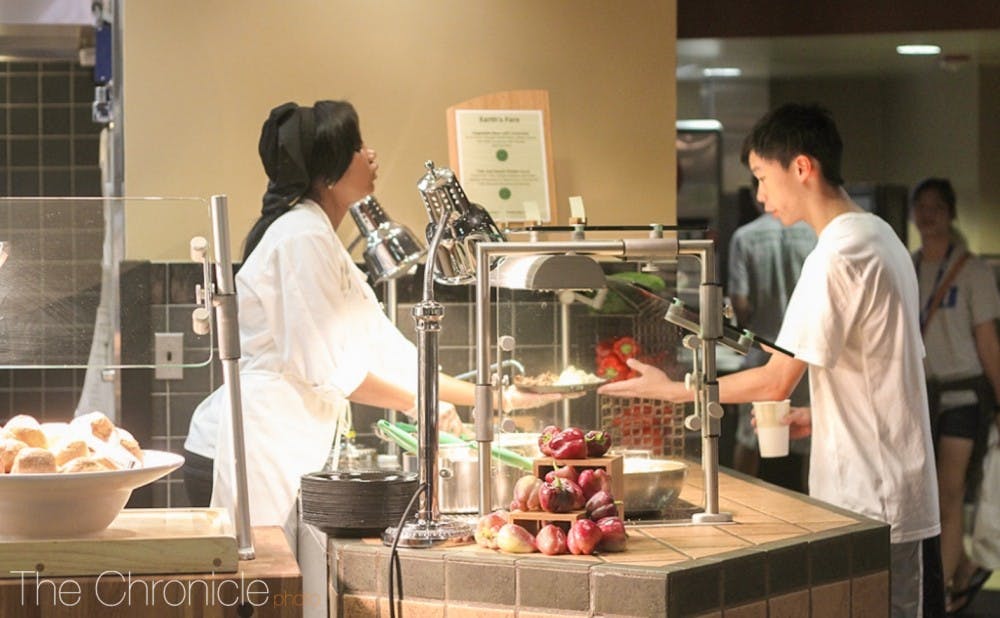Did you run out of food points during your first year at Duke?
The Class of 2023 might not have to worry about that problem after the Board of Trustees approved an increase to the number of food points included with first-year dining plans during its weekend meeting.
The plan was spearheaded by junior Liv McKinney, Duke Student Government vice president for services and sustainability. It will raise the number of food points included in the smallest dining plan to about 800, although Larry Moneta, vice president for student affairs, wrote that the administration is “still nailing down” the exact number.
“If you’re to actually follow [the current] 500-food-point meal plan… it promotes a very unhealthy way of living and eating on campus,” McKinney said. “So I think just having a bigger amount to start with is huge for students who can’t afford to have more, but also just for promoting eating three meals a day.”
The current offerings include either 472 or 545 food points, which are valued at a dollar each. Both current plans also include 14 meals per week at East Campus' Marketplace.
McKinney began working on the project last year, when she surveyed students to ask whether they had run out of food points and if they could afford to purchase more.
“Looking at that data, it was very concerning, the percentage of students who were unable to add more food points if they did run out,” she said. “Looking at when they ran out, it was almost overwhelmingly all first-years.”
McKinney noted that that the current plans are designed so that students will run out of food points and add more. However, she said that financial aid usually does not cover food points added during a semester, which leads many students to conserve the initial offering of points. This can include skipping breakfast to get lunch equivalency at Marketplace.
The increase in food points will be covered for students whose financial aid covers dining, Moneta wrote. The cost of the first-year dining plan will increase to match the increased number of points for those who do not receive aid.
McKinney said that she initially wanted to create a “food point bank,” where students with extra food points could donate them to be distributed to those who ran out. However, she said that the administration found the idea too complicated and easy to abuse.
She said that Moneta preferred to instead increase the quantity of food points, eliminating the need for such a “safety net" altogether.
“We wanted to be sure that even our smallest plan for first year students would provide adequate meals for the year,” Moneta wrote in an email to The Chronicle.
McKinney then worked on the project with the Department of Student Affairs and the Office of the Provost. Duke Dining calculated the new number of food points by using the average cost of a meal at the Brodhead Center and the average number of days that a first-year student eats on West Campus in a semester.
The new plan is designed to allow first-year students to eat lunch every day, whether on East or West Campus, while still using their breakfast swipe, McKinney said.
Get The Chronicle straight to your inbox
Signup for our weekly newsletter. Cancel at any time.
Matthew Griffin was editor-in-chief of The Chronicle's 116th volume.

